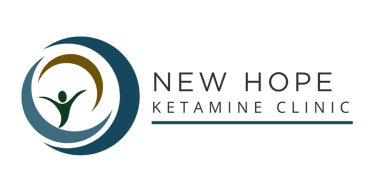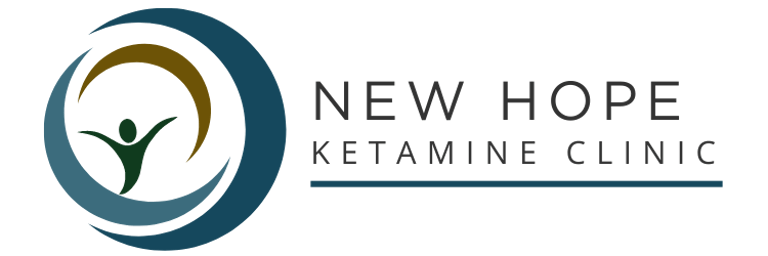Address: 21660 W Field Pkwy, Suite 301, Deer Park, IL 60010

Understanding Depressive Disorders
Navigating a Changing Landscape of Treatments
Admin
11/29/2023
Depressive disorders, commonly known as depression, cast a long shadow over the lives of those affected. A group of mood disorders marked by persistent feelings of sadness, emptiness, and a lack of interest or pleasure in daily activities, depression is a complex condition that demands a nuanced understanding. In this comprehensive guide, we will explore the various types of depressive disorders, delve into their causes and risk factors, and discuss both traditional and emerging treatment options.
Types of Depressive Disorders:
1. Major Depressive Disorder (MDD): The most prevalent form of depressive disorder, MDD entails persistent low mood, loss of interest or pleasure, changes in sleep and appetite, fatigue, and feelings of worthlessness.
2. Persistent Depressive Disorder (Dysthymia): Characterized by chronic symptoms lasting at least two years, dysthymia may not be as severe as MDD but significantly impacts long-term well-being.
3. Bipolar Disorder (Manic-Depressive Illness): Involving alternating periods of depression and mania, bipolar disorder adds a layer of complexity to the depressive spectrum.
4. Seasonal Affective Disorder (SAD): Triggered by seasonal changes, particularly in reduced sunlight exposure during fall and winter, SAD brings symptoms like fatigue, oversleeping, and weight gain.
Causes and Risk Factors:
Understanding the root causes and risk factors of depressive disorders is crucial for effective intervention:
1. Biological Factors: Neurotransmitter imbalances, genetic predisposition, and changes in brain structure contribute to the onset of depressive disorders.
2. Psychological Factors: Childhood trauma, chronic stress, and negative thought patterns amplify the risk of depression.
3. Environmental Factors: Adverse life events, such as loss or financial struggles, can trigger depressive episodes.
4. Medical Conditions: Chronic pain, hormonal imbalances, and a history of other mental health disorders increase susceptibility to depression.
Diagnosis and Personalized Treatment Plans:
The traditional arsenal against depression includes medication, psychotherapy, and lifestyle adjustments:
1. Medication: Antidepressants like SSRIs or SNRIs play a vital role in alleviating symptoms, though finding the right medication and dosage may take time.
2. Psychotherapy: Cognitive-behavioral therapy (CBT), interpersonal therapy, and psychodynamic therapy help individuals identify and change negative thought patterns and behaviors.
3. Lifestyle Changes: Regular exercise, a balanced diet, and sufficient sleep contribute to overall well-being.
Emerging Treatment Options:
Recent years have witnessed the introduction of novel treatments, expanding the toolkit for addressing depressive disorders:
1. Ketamine Infusion Therapy: Ketamine, traditionally known as an anesthetic, has shown promising results in rapidly alleviating depressive symptoms. Administered through intravenous infusion, ketamine works on different neurotransmitters than traditional antidepressants.
2. Spravato (Esketamine) Nasal Spray: A derivative of ketamine, Esketamine, sold under the brand name Spravato, is administered as a nasal spray. This innovative approach provides a more accessible and convenient option for individuals seeking rapid relief from depressive symptoms.
3. Transcranial Magnetic Stimulation (TMS): Transcranial Magnetic Stimulation (TMS) is a cutting-edge and non-invasive treatment option for depression that harnesses the power of magnetic fields to stimulate nerve cells in the brain. This innovative therapy has shown promise in cases where traditional approaches may have proven less effective. By precisely targeting specific areas of the brain associated with mood regulation, TMS offers a novel avenue for individuals seeking relief from depressive symptoms without the use of medication.
Traditional Treatment Approaches:
Accurate diagnosis involves a thorough assessment of symptoms, medical history, and sometimes, psychological evaluations. Tailoring treatment plans to individual needs is essential, considering the variety of available options.


Living with Depressive Disorders:
Managing depressive disorders involves building a support system, practicing self-care, and embracing new treatment possibilities:
1. Build a Support Network: Understanding and supportive friends and family play a crucial role in coping with depressive symptoms.
2. Self-Care: Prioritizing self-care activities, such as exercise, proper nutrition, and adequate sleep, complements traditional and emerging treatment methods.
3. Incorporate New Treatment Options: Discussing the potential benefits of ketamine infusion or Spravato nasal spray with healthcare professionals can open new avenues for effective treatment.
4. Mindfulness and Relaxation Techniques: Practices like mindfulness meditation and deep breathing exercises remain valuable tools for managing stress.
Breaking the Stigma:
Despite the evolution of treatment options, a stigma still shrouds depressive disorders. Open conversations about mental health, education, and empathy are crucial for breaking down barriers and fostering a society where seeking help is not only accepted but encouraged.
Conclusion:
Depressive disorders demand a holistic and evolving approach. Understanding the various types, causes, and an array of treatment options, both traditional and emerging, is pivotal. By embracing new possibilities, breaking stigmas, and promoting a comprehensive approach to mental health, we pave the way for a society where individuals feel empowered to seek help and discover effective strategies for managing depressive disorders. There is hope, and with the evolving landscape of treatments, brighter days lie ahead for those navigating the complexities of depression.
Health Care Professionals' Resources
Sign Up To Receive The Latest Updates On Ketamine Infusion Therapy And Spravato Nasal Spray For Mental Health




Contact Us
21660 W Field Pkwy
Suite 301
Deer Park, IL 60010
Phone:
847-232-4045
Fax:
847-232-4042
Email:
info@newhopeinfusion.com
Treatments
Disclaimer
© 2024. All rights reserved.
Pages
Hours of Operation
Monday 9:00am- 5:00pm
Wednesday 9:00am- 5:00pm
If you or someone you care about is currently facing a crisis, we strongly urge you to contact the National Suicide Prevention Lifeline at 800-273-8255 or call 911 for immediate assistance.
